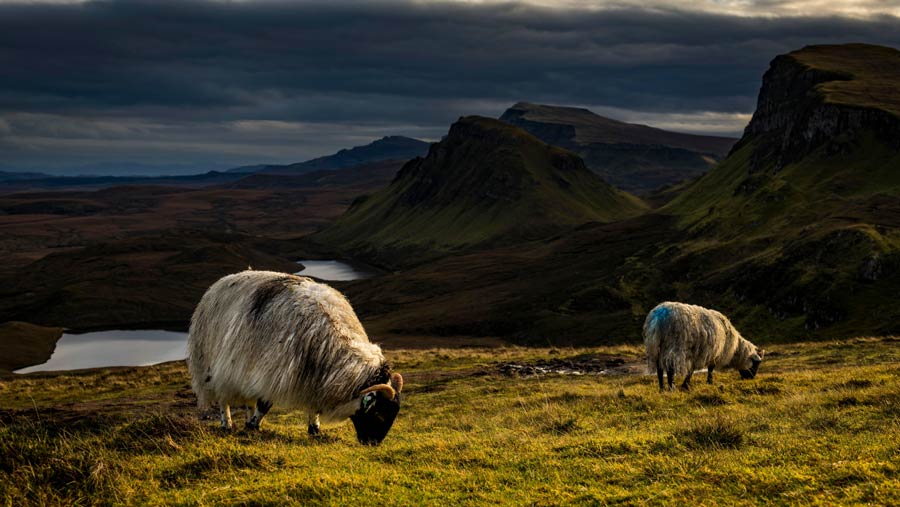Scottish rural economy faces collapse without hill payments
 © Shutterstock/Robert Seitz / imageBROKER
© Shutterstock/Robert Seitz / imageBROKER Scottish hill farmers say the rural economy faces collapse unless £65m in support payments are reinstated from next spring.
The Less Favoured Area Support Scheme (LFASS) provides income for some 10,500 hill and upland farm businesses in Scotland’s remote and constrained rural areas.
See also: Hill support must continue post 2020, say Scots
But “huge question marks” remain over future funding levels after the Brexit transition period ends on 31 December 2020, says NFU Scotland (NFUS).
The union wants the Scottish government to retain the LFASS with a £65m budget from 2021. Payments in spring 2021 should be made at the same level as in 2018, it says.
NFUS also wants the Scottish Upland Sheep Support Scheme retained, with the added safeguard on the number of ewe hoggs claimed limited to 20% of the ewe flock.
Struggling
This would help hill farmers in tougher areas who are struggling, it says.
Less-favoured areas account for 86% of Scotland’s agricultural land, 90% of its sheep and 83% of its beef herd – making the uplands the backbone of the country’s red meat sector.
NFUS says the £65m in LFASS payments provide vital support to a rural economy worth at least £1bn.
It says LFAs are critical in the delivery of local jobs, world-famous landscapes and biodiversity, carbon sequestration, thriving communities and cultural heritage.
Wider benefits
Farmers and crofters are the glue that holds the Highlands and Islands together, said NFU Scotland LFA committee chairman Robert MacDonald.
“Without that, you’ve got nothing,” he said. “Tourism would struggle if it wasn’t coming off the back of farming and crofting in these areas.”
Farmers also provide and maintain biodiversity – as well as providing carbon sequestration benefits through light grazing sheep, added Mr MacDonald.
NFU Scotland says LFASS support should be retained until at least 2024, so farmers can deliver these wider benefits beyond agriculture.
Doing so will ensure farming and crofting remain the economic catalyst behind many of Scotland’s remote and island communities, it says.
